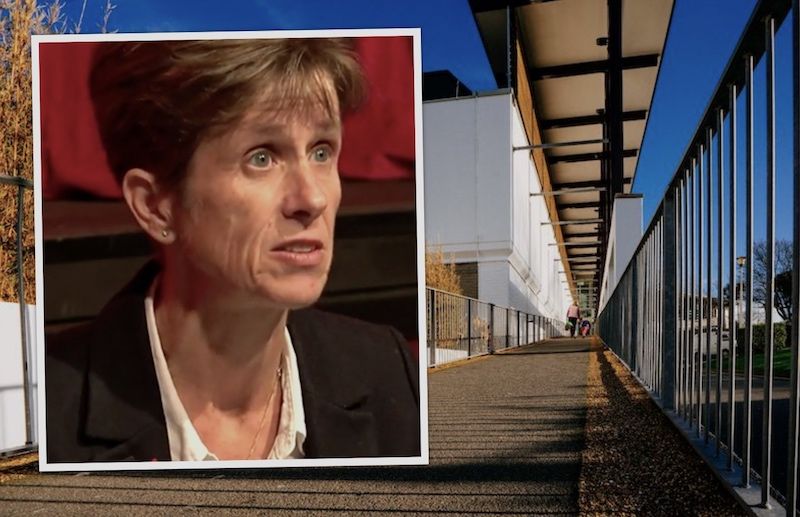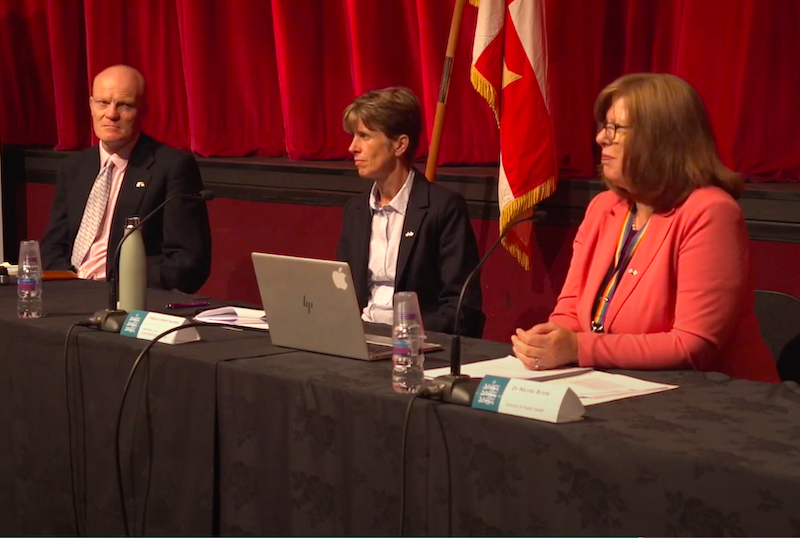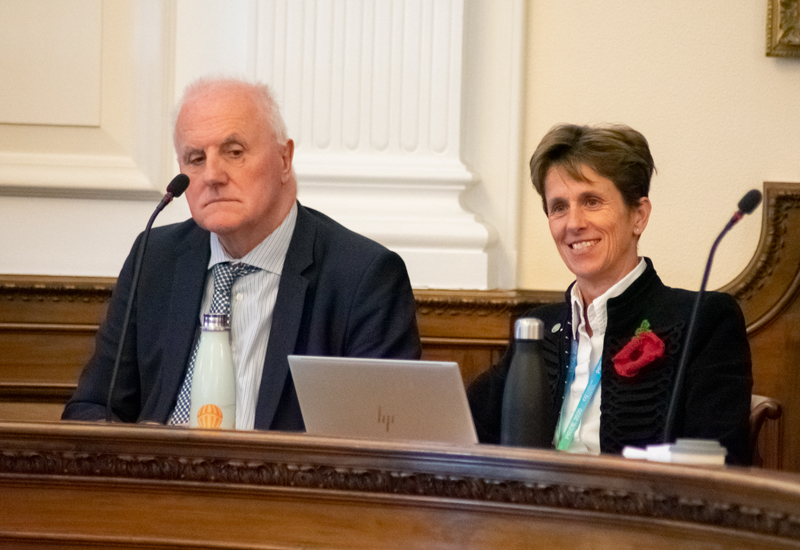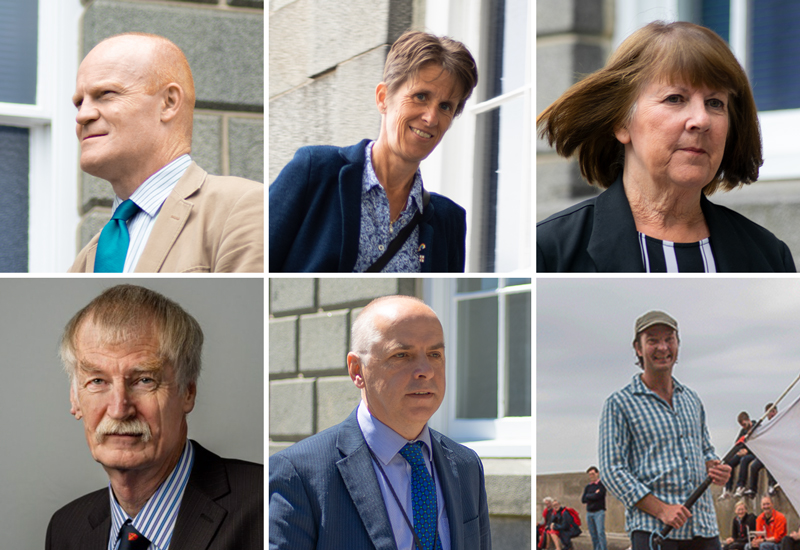


Going into lockdown one year ago today was "the only thing we could do", however the then-Health & Social Care President said the enormity of taking away people's freedom is a decision she has wrestled with ever since.
Deputy Heidi Soulsby was one of the politicians who made the call to lock the island down on 25 March 2020 - a "life-changing" decision that has changed the shape of society amid a year of global turmoil.
It was around three months after the first cases of Covid-19 were confirmed in Wuhan, China, before spreading across the world. It was quickly identified as a wider point of concern with pandemic potential by Guernsey's Public Health team.
"I can remember seeing those cases arise towards the end of 2019/early 2020 and looking at it thinking “this doesn’t look good”," Public Health Director Dr Nicola Brink told Express.
"The virus wasn’t behaving in a way that we had seen and before, there seemed to be human transmissibility occurring and we really felt from the middle of January that this had pandemic potential and that we had to prepare as such. We knew that preparation for us was key as a small jurisdiction."
As these concerns became more serious, they were raised with politicians on Health & Social Care.
"Knowing Nikki and working very closely with her, when she sent an email on 14 January to say we are worried about this virus in Wuhan, there was something that told me this wasn’t going to go away," said Deputy Soulsby.

Pictured: Press briefings were first convened last year as a way of giving regular updates on the progress of the pandemic and the political decisions made by the CCA.
"It was a blur after that, a blur of needing to call the Civil Contingencies Authority, of press briefings, and just getting through it. You tend to get into a routine even though it was totally out of your normal existence. You just get through and take every day as it comes."
Local restrictions started out small in scale, as those returning from China were asked to self-isolate for two weeks, starting from 7 February. Just a few days later, concerns over travel accelerated, with staff and students from a ski trip to northern Italy asked to self-isolate after one of the pupils showed Covid-19-like symptoms.
All of those tests came back negative, and it wasn't until 9 March that Guernsey recorded its first positive test for Covid-19, which was travel-related.
Covid-19 was declared a pandemic by the World Health Organisation on 11 March as international cases soared. The following day, islanders were advised against non-essential travel and two-week quarantine requirements were imposed.
Tomorrow will be a difficult one for me. It’ll be a year ago to the day my Committee ordered lockdown. I will be eternally grateful for the support @RhianGsy @emiliemcswiggan @dawnatindall Rob Prow and our amazing officers gave me then and in the following months. I won’t forget.
— Heidi Soulsby (@HeidiSoulsby) March 24, 2021
On Friday 20 March, just ahead of the weekend, further restrictions were put in to close restaurants and pubs as announcements became more frequent and restrictions on daily life started to tighten.
That Saturday, 15 cases of Covid-19 were confirmed in a 24-hour period, all of which were linked to travel.
Schools were closed the following Monday, 23 March, and a press conference was called for Tuesday evening. That afternoon, the CCA met to discuss new emergency regulations. At that point, there were 23 confirmed cases of Covid-19 in Guernsey. Most significantly, one of those had caught the virus through community seeding.
With no testing capacity on the island and with Public Health having to pick and choose which samples to send to UK laboratories, the CCA delivered the stark message that, from 00:00 on Wednesday 25 March, Guernsey would be in lockdown.
"It was incredibly difficult," Deputy Soulsby recalled. "The decision itself was not difficult, because we knew it was the one thing we had to do. It’s understanding the implications on people’s lives that really hit me.

Pictured: Deputy Soulsby decided against re-standing for Health & Social Care and is now the States of Guernsey's Deputy Chief Minister.
"I remember coming home from when we announced the lockdown at Beau Sejour; I came home to my husband and said “I don’t know what we’ve done.”
"It was that feeling that, gosh, this was such a big thing we are doing to the community. I didn’t go into politics to restrict people’s human rights, quite the opposite.
"We knew we were doing the right thing but the sheer height of what we had to do, that was really difficult and has been ever since. Especially this lockdown, knowing what people went through last time.
"This time it has been much, much harder."

Pictured: The voting members of the Civil Contingencies Authority when the pandemic hit last year. Of the above, only Sark's John Guille remains due to political changes since.
Comments
Comments on this story express the views of the commentator only, not Bailiwick Publishing. We are unable to guarantee the accuracy of any of those comments.